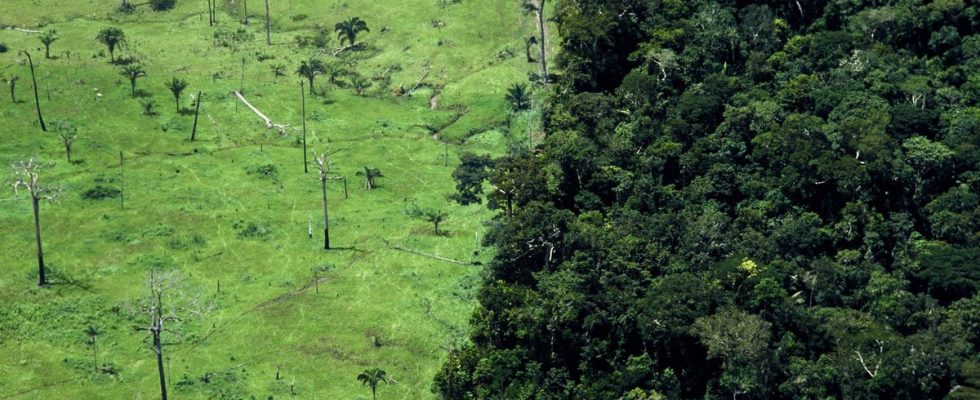Deforestation in the Brazilian Amazon fell by 31% in the first five months of the Lula government, from January to May, compared to the same period in 2022, according to data released on Wednesday by the Ministry of the Environment.
Collected by the satellites of the National Institute for Space Research (INPE), these data show 1,986 km2 deforested between January and May, against 2,867 km2 a year ago, under the presidency of Jair Bolsonaro (extreme right). The ministry also reported a 10% reduction in deforestation in May compared to the same month in 2022 (812 km2, compared to 900 last year).
Illegal deforestation eradicated in 2030?
After beating Jair Bolsonaro in the second round of the presidential election, Luiz Inacio Lula da Silva (left) pledged to make the preservation of the Amazon a priority. During his predecessor’s tenure, average annual deforestation soared 75% from the previous decade.
Monday, on the occasion of World Environment Day, Lula presented in Brasilia a new plan to fight against illegal deforestation, which he promised to eradicate by 2030. “Brazil, in particular thanks to to the Amazon rainforest, has great importance in the climatic balance of the planet […] preventing deforestation in the Amazon is also helping to reduce global warming,” he said.
The plan, which includes several hundred objectives, provides in particular for the immediate seizure of half of the illegally exploited areas within protected areas. By 2027, three million hectares of these conservation areas will be demarcated.
A spoke in the wheel by parliament
Despite the encouraging figures announced on Wednesday, the test of truth for the Lula government should begin in the coming months, with the dry season, when most of the deforestation and fires in the Amazon usually take place.
The Brazilian president has also suffered major setbacks in parliament in recent weeks. The Ministry of the Environment has seen its competences with regard to the cadastre of rural lands withdrawn by the deputies, an essential lever for monitoring and combating illegal deforestation. The ministry also loses the management of water resources. For its part, the Ministry of Indigenous Peoples has lost responsibility for the demarcation of new indigenous reserves, considered a major bulwark against deforestation.

